Our Community Platform providing Essential Information to Know what is Real
The Flowers of War
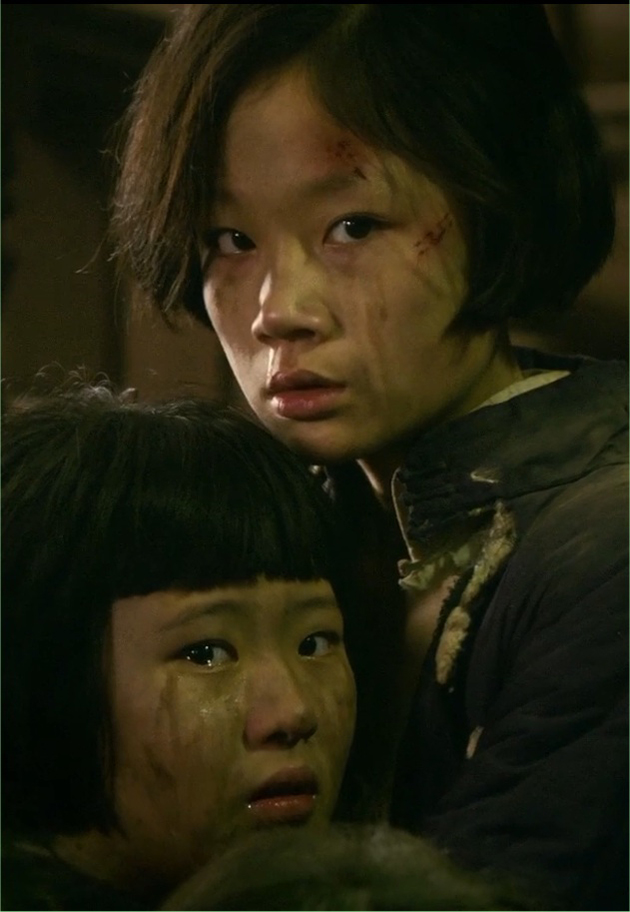
Fortunately for all, especailly John, God spoke to him, and reluctantly, in a brief instant, the American rouge mortician, and coward became Father John, defender of the innocence of God's children in the most hellish of moments, God spoke through him, as he unfurled a red cross banner from the top of the staircase ...
John Miller (Christian Bale): "THIS IS A HOUSE OF THE LORD! YOU ARE HONORABLE MEN! ACT HONORABLY!"
This act of honor and valor, by the transformed American, bought precious minutes of time for the young girls, and soon earned John Miller, Christian Bale, the butt of a Japanese rifle to his head, knocking him senseless.
With John Miller lying senseless at the foot of the staircase, and yet another young girl to fall to her death just feet, or less from the prostrate priest, the brutal Japanese soldiers were on the rampage once again, but, fortunately, there was one more miracle, and Godspeed.
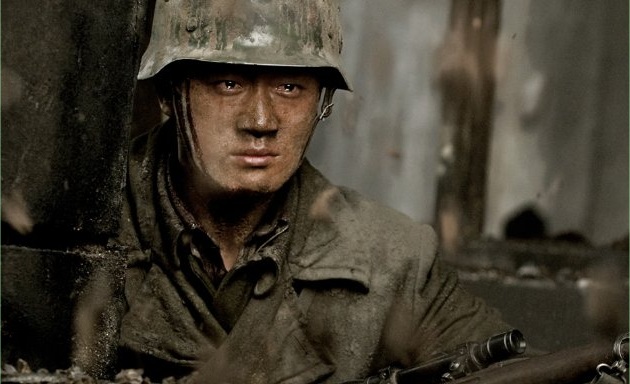
Just outside the convent's gates, there was yet one more Chinese soldier left alive, Major Li, Dawei Tong, and he knew his purpose to his core. His purpose was two fold: 1. Major Li had taken his severely wounded young soldier into the convent to be comforted as he lay dying of his mortal wounds (left him in the cellar with the whores), 2. Kept watch over the convent.
The second miracle, with the first being the transformation of John Miller into a good man, was the stoic Major keeping watch. Major Li was a hardened soldier, with a true heart and a fine aim with his archaic sniper's rifle. When the major saw the platoon-strength Japanese force enter the convent, he quickly set about his plan of offense while maintaining his defensive position. His plan was to effectively save the life of his soldier, and as many lives of the young girls. His life, brief and powerful, was of little consequence to the Major. The concise, but commanding character of Major Li set the tone for the balance of the film. It was a tone selfless magnanimity, a morality play of humanity, divinely inspired, indomitable in its quest to prevail over abject evil.
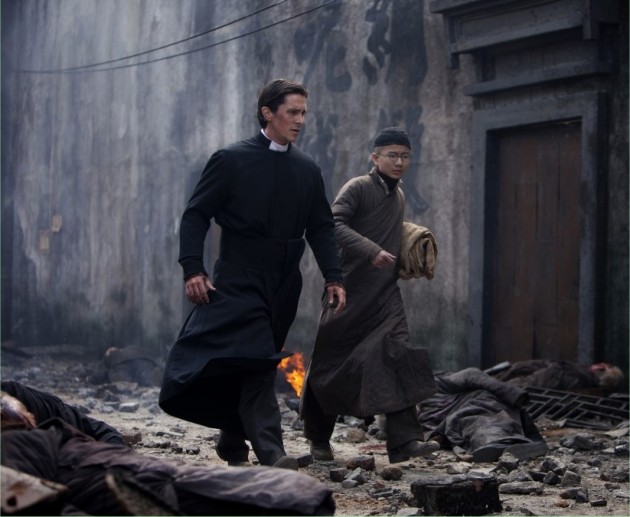
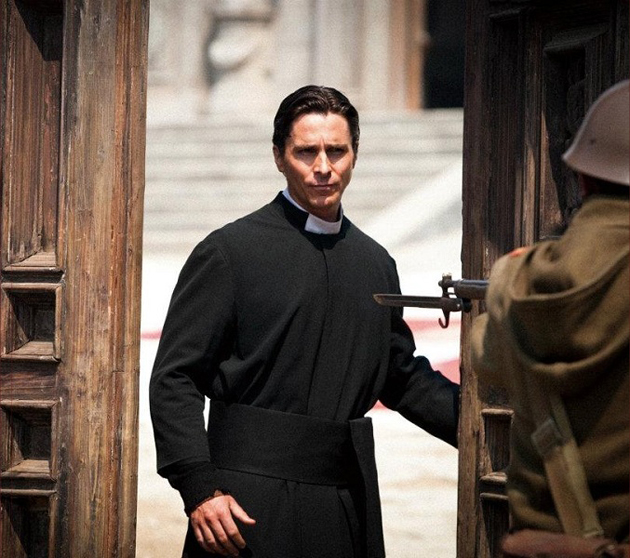
I often wonder if I can really show impartiality toward some film makers, such as Chinese Director Yimou Zhang. Director Zhang has directed two films that are classics: "Hero" and "House of Flying Daggars," which, like "The Flowers of War" was beautifully shot, and concentrated on the inherent drama of narrative. Yimou Zhang is a brilliant storyteller, even when he is forced to tell of the horrors of Nanking in late 1937. I believe I see the Chinese director in a pure context of one who struggles for the perfect details of the integral mechanics of film making.
An example of such was the Director's quest to use and American character, John Miller, for he thought "that adding a foreigner, a drifter, a thug almost, becomes a hero and saves the lives of Chinese people" would make the film more human.
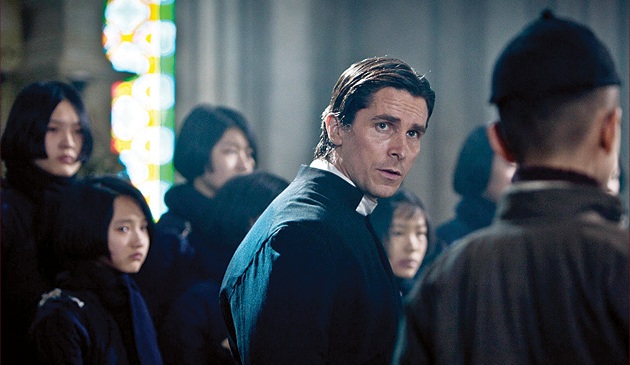
Director Yimou Zhang further articulated on dealing with Communist Chinese censorship, "That has never ever happened in Chinese filmmaking, and I think it will never happen again in the future."
With a production cost the equivalent of 94 million dollars, Flowers of War is the most expensive Chinese film ever made, and represents a way of life in China, although horrible, just before the advent of Chinese communism, with its enigmatic and ruthless leader Mao Tse -Tung. China has relaxed, somewhat, its cultural inhibitions, but is still fertile ground for all manner of censorship; however, it does appear that now, they are at least trying to understand some semblance of their past, rather than rewriting it or erasing it altogether.
Renowned film reviewer, Roger Ebert, who has made quite a bit of money writing badly about good films - for decades - had this to say about the film: "Can you think of any reason the character John Miller is needed to tell his story? Was any consideration given to the possibility of a Chinese priest? Would that be asking for too much?"
Fortunately, a wise director, like Yimou Zhang, would never heed the call of a crackpot film reviewer, like Ebert, who has proven to have - for decades - the intellectual depth of a puddle of mud. Possibly, other than clearly forming my own opinions unrestricted by the intuitions of others, this is why I don't read the reviews of reviewers. Couldn't care less.
Good film makers are this century's truest artists, and are solely responsible for the quality of that collaborative effort of creating a story in celluloid. Often the effort brings into fruition a product that works as communicative art, and sadly, sometimes it does not.
If a director of Yimou Zhang stature elects to challenge the Communist China Film Censorship Commission to wrangle from them the use of an American character, who becomes just one of the many heroes of this historic film, who then is a simple-minded Roger Ebert to challenge that wisdom. John Miller, however flawed, was the director's symbol of the representative of this American nation, which from 1940 to 1945, sacrificed magnanimously to liberate Nationalist China from the barbaric occupation of Imperial Japan, and therefore did save countless Chinese lives in the process.
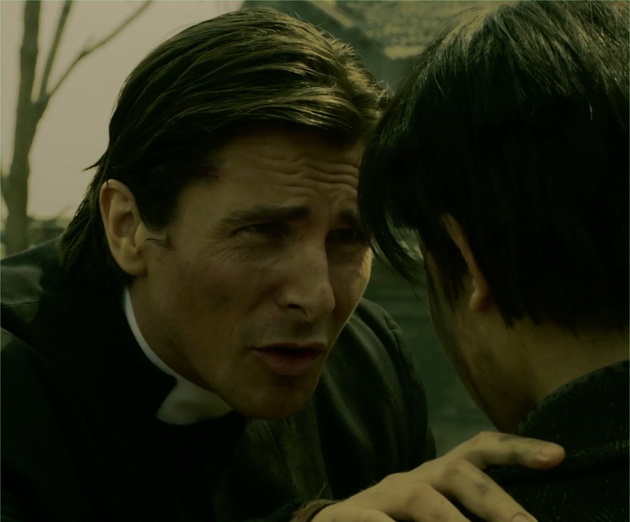
Christian Bale's intense, personal portrayal of John Miller was on point, and served well for Director Yimou Zhang's efforts to place him in this story. Bale's flawed character, as was the character of the whore, Yu Mo, played by Ni Ni, added noble dimension to a strained story of redemption for the many, who sought to save the few, and in their salvation an essential story was told to know, remember, and never again endure.
Rated R. Release on DVD July 10, 2011. Language: roughly 40% English, balance in Mandarin with subtitles automatically provided.
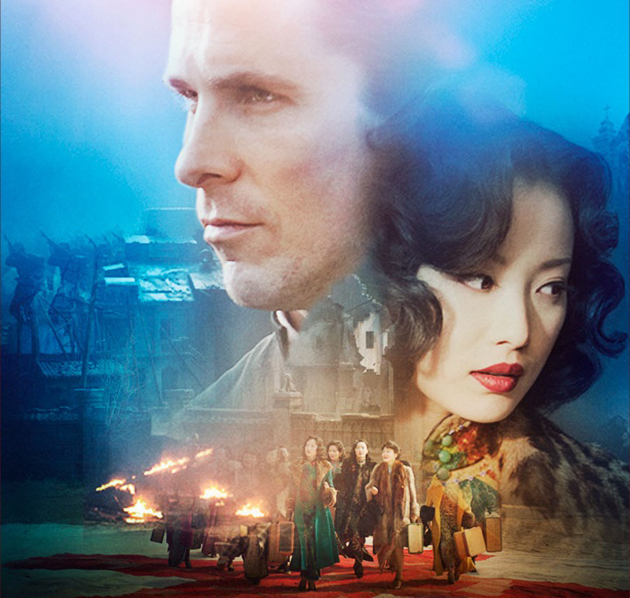
| 2016: Obama's America | Local News & Expression, Favorite Film Reviews by Readers, DVD Reviews, Forgotten Classics, Movie Reviews, The Arts | In Remembrance of 9/11 |





















